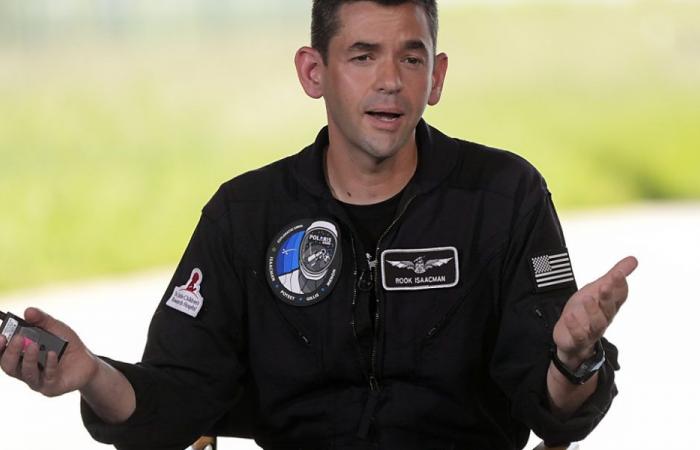Thousands of pro-EU demonstrators gathered on Wednesday in Tbilisi in Georgia for a seventh night of protest against the government, which increased pressure on the movement by notably arresting at least three opposition leaders.
This Caucasian country has been in turmoil since the legislative elections of October 26, won by the ruling party, Georgian Dream, but denounced as rigged by the opposition. The government is also accused of hindering Georgia’s ambitions to join the EU and of wanting to get closer to Moscow.
The previous six nights of mobilization had been dispersed by the police with water cannons and tear gas, and nearly 300 people were arrested.
On Wednesday evening, the crowd, which displayed Georgian and European flags, braved cold temperatures, chanting the national anthem under the watchful eyes of dozens of police officers, AFP journalists noted.
As on previous evenings, the demonstrators used green lasers to try to blind the police, in rows in front of the windows, many of them broken, of Parliament.
Many of the participants came equipped with diving goggles or surgical masks to protect themselves from the tear gas used in abundance by the police the previous evenings.
The crowd seemed sparser compared to the massive gatherings of last week, even if the attendance remained significant for this country of around 4 million inhabitants.
“Angry”
Nikoloz Bakouradzé, a 19-year-old student with a thin moustache, thinks the movement has “already passed its peak”. “Today, like yesterday, there are fewer people,” said the young man, while judging that “the energy remains the same.”
Eka Moniava, a 50-year-old artist, thinks the movement is experiencing a pivotal moment. According to her, the arrests of demonstrators and the police raids show that those in power “are afraid” and seek to intimidate. It remains to be seen, she said, whether the strategy will work. “People are getting angrier and angrier,” she said, hoping that this will push them back into the streets.
Torniké, a 29-year-old musician, says he did not participate in the demonstrations in the first days. “But seeing on television how the police treated people, I came,” says the young man, who wears a ski mask. The attitude of the police is “disgusting, there are no other words,” he said. “It’s not human.”
The authorities increased their pressure on the movement by searching the offices of the opposition Droa party on Wednesday. Hooded police officers brutalized then took away Nika Gvaramia, the leader of another allied party, Akhali, according to images from the independent television channel Pirveli.
According to this channel, two other opposition leaders, Alexandre Elisachvili and Zourab Datounashvili, were arrested near the demonstration, during a fight with security agents.
The Interior Ministry also reported the arrest of seven people accused of having “organized” violence during the demonstrations. They face up to 9 years in prison.
He confirmed having carried out searches in the offices of several political parties and claimed that a “large number of pyrotechnic devices” and Molotov cocktails had been seized.
The main Georgian opposition party, the United National Movement (UNM) of imprisoned former president Mikhail Saakashvili, accused the authorities of having “launched a campaign of terror and repression”.
Water cannons versus fireworks
Demonstrations in Tbilisi broke out last Thursday after the government announced the postponement until 2028 of the ambitions of this former Soviet republic in the Caucasus to join the EU.
Every evening, police and demonstrators clash with water cannons and tear gas on one side and fireworks and lasers on the other.
Georgian human rights commissioner Levan Ioseliani accused police of violating protesters “in a punitive manner”, which constitutes “an act of torture”.
Since the start of the movement, 293 people have been detained, the Interior Ministry announced Tuesday evening, and 143 police officers have been injured.
Georgian Prime Minister Irakli Kobakhidze has, for the moment, adopted a hard line, threatening the opposition and refusing any concessions.
On Wednesday, he promised again to repress the “radical opposition” and NGOs who, according to him, organize “violent actions” and try to destabilize the country. “No one will escape their responsibilities,” he warned.
This article was automatically published. Sources: ats / afp






